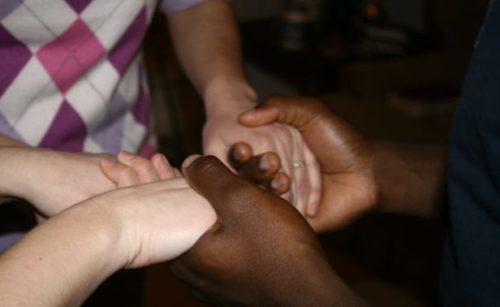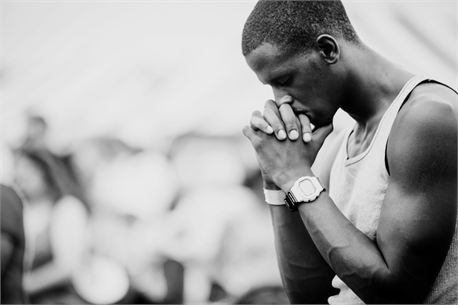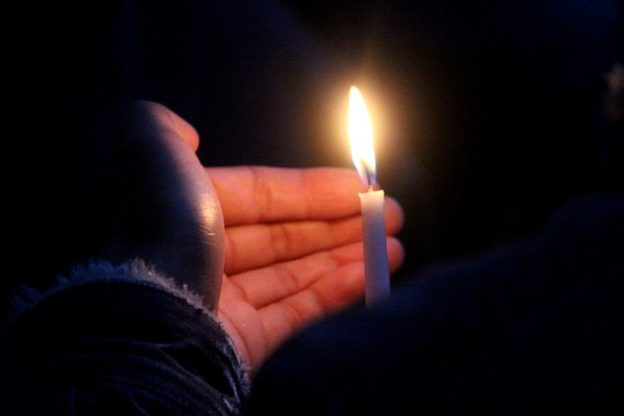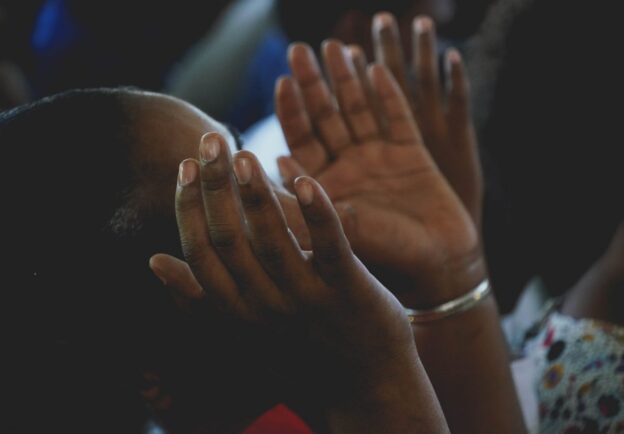What is the difference between praying and living a life of prayer?
Practically everyone prays now and then — even atheists, when they end up in foxholes. Offering an occasional prayer is much different than living a life of prayer, though. Biblical teaching suggests that a fully formed faith will express itself in a prayerful life. “Rejoice always,” the Apostle Paul tells us in 1 Thessalonians, “pray without ceasing, give thanks in all circumstances; for this is the will of God in Christ Jesus for you.” [1]
The practice of prayer was important in early Methodist spirituality and was encouraged by John Wesley. Wesley refers to faithful discipleship as “the Way of Prayer.” [2] About Paul’s counsel in 1 Thessalonians, Wesley says: “God’s command to ‘pray without ceasing’ is founded on the necessity we have of His grace to preserve the life of God in the soul, which can no more subsist one moment without it, than the body can without air.” [3]
So prayer is not only important; it is vital to all life!
It’s one thing to affirm the need for prayer, but it’s quite another to know what that looks like in practical life. We all follow routines and patterns in our lives — but few of us truly set those routines by our commitment to spiritual disciplines. We don’t live in a world very conducive to that sort of life, and it’s not clear that the church does a good job of teaching it.
So here I’d like to offer a pattern for prayer that can help any Christian begin to build a rhythm of prayer into daily life. For anyone who is only used to offering a brief grace before meals or a prayer at bedtime, this pattern offers a fuller approach to the life of prayer. On the other hand, this pattern is also basic enough that it can be incorporated into practically any one’s daily life. First take a look at the pattern itself, and then read on for an explanation about how to use it in your day-to-day life.
The Pattern of Daily Prayer
9:00 a.m. Pray for Self
New every morning is your love, great God of light,
and all day long you are working for good in the world.
Stir up in us a desire to serve you,
to live peacefully with our neighbors,
and to devote each day to your Son,
our Lord and Savior, Jesus Christ. Amen.
12:00 noon Pray for Family
Our Father, who art in heaven,
hallowed be thy name,
Thy kingdom come,
thy will be done,
on earth as it is in heaven.
Give us this day our daily bread.
Forgive us our trespasses
as we forgive those who trespass against us.
And lead us not into temptation,
but deliver us from evil
For thine is the kingdom, and the power, and the glory,
for ever and ever.
Amen.
3:00 p.m. Pray for Church
We give you thanks for this day, O Father in Heaven,
for our work and our rest, for our food and our fellowship.
Sanctify us through the grace of your Son,
our Lord Jesus Christ.
And direct us by your Holy Spirit,
to walk in the ways that lead to life,
to avoid all outward and inward sin,
and to glorify your name in all that we say and do. Amen.
Pattern of Daily Prayer: The How and Why
This pattern of daily prayer will allow you to punctuate your day with prayer to God. By pausing for just five minutes at three times each day, we can build a holy rhythm into our lives that draws us closer to God. As the Scripture says, “Submit yourselves therefore to God. Resist the devil, and he will flee from you. Draw near to God, and he will draw near to you … Humble yourselves before the Lord, and he will exalt you.” [4] John Wesley echoes this teaching where he tells us, “God hardly gives His Spirit even to those whom He has established in grace, if they do not pray for it on all occasions, not only once, but many times.” [5] It is no exaggeration to say that prayer is the beating heart of Christian discipleship.
The framework for this prayer pattern is Trinitarian. Jesus’ high priestly prayer to God the Father in John 17 includes prayer for himself, prayer for his disciples, and prayer for the whole church. So our own pattern here includes prayer for ourselves, prayer for our families (whether that be our own kin or our faith community), and prayer for the church universal.
We begin at 9 AM with a morning prayer that includes both adoration and petition. It exalts the love and providence of God, and it asks God to be at work in our lives throughout the day.[6] After we say this prayer, we offer up a prayer from our own hearts that includes our personal thanksgivings and humble requests.
Our midday prayer comes at 12 noon and begins with saying the Lord’s Prayer. This is the prayer that Jesus gave to his disciples, and it is the most precious prayer that we know. After we pray the Lord’s Prayer, we offer up a prayer from our hearts for our families. It is appropriate
to think of this prayer either as a prayer for our own blood kin or as a prayer for the church family to which we belong. Most days it will probably include both.
Our evening prayer follows at 3 PM and consists of a prayer to the Holy Trinity. This is a prayer that both gives thanks to Father, Son, and Holy Spirit, and also seeks the grace of God for our sanctification. After we offer up this prayer, we lift up a prayer from our hearts for the wider church — which will focus on those intercessions that we know are needed for that day.
Even when we add each written prayer to the personal prayer which will follow at 9 AM, 12 noon, and 3 PM, the daily rhythm will not take more than 5 minutes at each period. That means just 15 minutes in prayer — something which even the busiest among us can incorporate into our lives. The best practice would be to print out the prayer pattern and keep it somewhere that you will notice it throughout your day. Even after you learn the three written prayers by heart, you can use the printed copy as a visible reminder to pause and live up your heart in prayer to the God of love.
[1] 1 Thessalonians 5:16-18; NRSV.
[2] John Wesley, “The Means of Grace,” ¶III.1, in volume 1 of Sermons on Several Occasions (London: W. Strahan, 1746), 233
[3] Wesley, A Plain Account of Christian Perfection, Q.38.5 (Peterborough, UK: Epworth Press, 1952), 101.
[4] James 4:7-8a,10; NRSV.
[5] Wesley, A Plain Account of Christian Perfection, Q.38.5, 100.
[6] This prayer is adapted from the “Prayer of Thanksgiving” in the Order for Morning Praise and Prayer,United Methodist Hymnal (Nashville: UMPH, 1989), 877.








